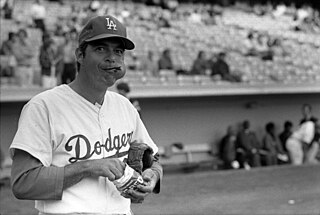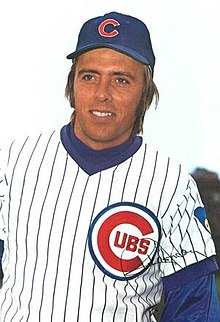
The Los Angeles Dodgers are an American professional baseball team based in Los Angeles. The Dodgers compete in Major League Baseball (MLB) as a member club of the National League (NL) West Division. Established in 1883 in the city of Brooklyn, which in 1898 became a borough of New York City, the team joined the NL in 1890 as the Brooklyn Bridegrooms and assumed several other monikers before finally settling on the name Dodgers in 1932. From the 1940s through the mid-1950s, the Dodgers developed a fierce crosstown rivalry with the New York Yankees as the two clubs faced each other in the World Series seven times, with the Dodgers losing the first five matchups before defeating them to win the franchise's first title in 1955. It was also during this period that the Dodgers made history by breaking the baseball color line in 1947 with the debut of Jackie Robinson, the first African American to play in the Major Leagues since 1884. Another major milestone was reached in 1956 when Don Newcombe became the first player ever to win both the Cy Young Award and the NL MVP in the same season.

Donald Scott Drysdale, nicknamed "Big D", was an American professional baseball pitcher and broadcaster who played in Major League Baseball. He spent his entire 14-year career with the Brooklyn/Los Angeles Dodgers. Known for being a fierce competitor, Drysdale won the Cy Young Award in 1962 and was a three-time World Series champion during his playing career.

Vincent Edward Scully was an American sportscaster, best known for his broadcast work in Major League Baseball. Scully was the play-by-play announcer for the Brooklyn / Los Angeles Dodgers for sixty-seven years, beginning in 1950 and ending in 2016. He is considered by many to be the greatest sports broadcaster of all time.
The following are the baseball events of the year 2000 throughout the world.

James Thomas Brewer was an American relief pitcher and coach in Major League Baseball. From 1960 through 1976, Brewer played for the Chicago Cubs, Los Angeles Dodgers, and California Angels. He batted and threw left-handed.

Robert Herbert Forsch was an American professional baseball player who spent most of his sixteen years in Major League Baseball (MLB) with the St. Louis Cardinals (1974–1988) before finishing his playing career with the Houston Astros (1988–1989). He was a member of the 1982 World Series Champions and National League (NL) pennant winners in 1985 and 1987.

On September 9, 1965, Sandy Koufax of the Los Angeles Dodgers pitched a perfect game in the National League against the Chicago Cubs at Dodger Stadium.
The Lewiston Broncs were a minor league baseball team in the northwest United States, based in Lewiston, Idaho, and played from 1952 through 1974. Locally, the team was known as "Lewis-Clark" to include the adjacent twin city of Clarkston, Washington. The team's ballpark was Bengal Field, a few blocks southeast of the high school.
The 1978 season ended with the Los Angeles Dodgers winning their second straight National League pennant and losing to the New York Yankees in the World Series again. Dodger coach Jim Gilliam died at the end of the season and his uniform number, 19, was retired by the team prior to Game 1 of the World Series; the team also wore a black memorial patch with Gilliam's number during the World Series. Unlike the previous Dodger team, no member of the team hit 30 home runs after seeing four members hit that mark the previous season.
Michael Douglas Garman is an American former professional baseball player. A relief pitcher, he played for five different teams in Major League Baseball (MLB) between 1969 and 1978. He was a first-round draft selection of the Boston Red Sox in the 1967 MLB draft. Listed at 6 feet 3 inches (191 cm) and 215 pounds (98 kg), he threw and batted right-handed.
The 1977 Los Angeles Dodgers season saw Tommy Lasorda in his first full season at the helm of the Dodgers, replacing longtime manager Walter Alston as manager of the team near the end of the previous season. The Dodgers won the National League West by 10 games and defeated the Philadelphia Phillies in four games in the NLCS, then lost to the New York Yankees in the World Series. This edition of the Dodgers featured the first quartet of teammates that hit 30 or more home runs: Steve Garvey with 33, Reggie Smith with 32, and Dusty Baker and Ron Cey, who both hit 30. The Dodgers duplicated this feat again 20 years later in 1997.
The 1965 Los Angeles Dodgers finished the regular-season with a 97–65 record, which earned them the NL pennant by two games over their arch-rivals, the San Francisco Giants. The Dodgers went on to win the World Series in seven games over the Minnesota Twins.
The Los Angeles Dodgers took the field before 78,672 fans at the Los Angeles Memorial Coliseum on April 18, 1958, to usher in the beginning of the team's new home in Los Angeles. It was a rough season, as the Dodgers finished 21 games in back of the pennant-winning Milwaukee Braves in the National League standings, but it was the beginning of the second phase for the team. Vin Scully and company moved to KTTV (television) and KMPC (radio) from that year onward, and the Dodgers became one of the first teams that commenced Spanish language radio broadcasts for Latinos, with KWKW as the first station to offer a Spanish-language service.

The 1976 Chicago Cubs season was the 105th season of the Chicago Cubs franchise, the 101st in the National League and the 61st at Wrigley Field. The Cubs finished fourth in the National League East with a record of 75–87.
The 1991 Major League Baseball season saw the Minnesota Twins defeat the Atlanta Braves for the World Series title, in a series where every game was won by the home team.
The 1965 Major League Baseball season was contested from April 12 to October 14, 1965. The Los Angeles Dodgers and Minnesota Twins were the regular season champions of the National League and American League, respectively. The Dodgers then defeated the Twins in the World Series, four games to three.
The 1976 Major League Baseball season ended with the Cincinnati Reds winning their second consecutive World Series championship.
The Los Angeles Dodgers Radio Network is a network that consists of 27 radio stations that air Major League Baseball games of the Los Angeles Dodgers in parts of seven states and one U.S. territory and in three languages. As of June 2012, 20 stations broadcast games in English, while another six broadcast them in Spanish. In 2013, Korean broadcasts were added, making it the only tri-lingual network in Major League Baseball.
In 1980, 22 teams took part in a one-year cable deal with UA-Columbia. The deal involved the airing of a Thursday night Game of the Week in markets at least 50 miles (80 km) from a major league park. The deal earned Major League Baseball less than $500,000, but led to a new two-year contract for 40-45 games per season.







